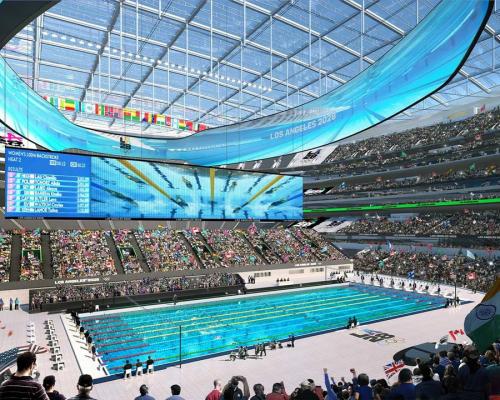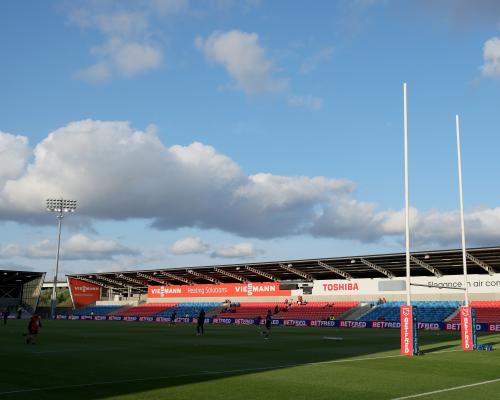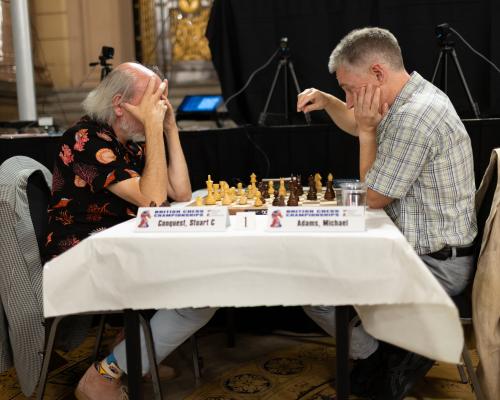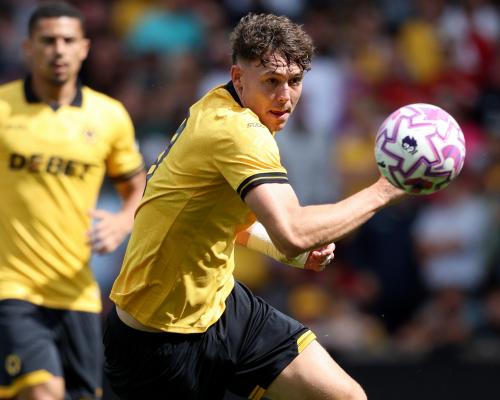
In three years’ time, the swimming programme for the Los Angeles Olympics will unfold over nine days and nights on the grandest stage the sport has ever known. A purpose-built pool inside SoFi Stadium in Inglewood will be the centerpiece of a 38,000-capacity open-air natatorium, transforming the $5bn home of the NFL’s Rams and Chargers into the largest swimming venue in modern history. For the United States, a rare Summer Games on home soil should be a coronation, a chance to showcase the depth of its talent in the country’s most spectacular arena. Yet Michael Phelps, the most decorated Olympian of them all, fears the US swimming program is in no shape to seize the moment.
Phelps has launched a withering attack on USA Swimming’s leadership, accusing it of “weak” stewardship, “poor operational controls” and presiding over years of organizational drift. The 23-times Olympic gold medalist said he would think twice about letting his own sons join the system in its current state. His concerns, he says, stretch back to his own competitive career, when athlete voices were too often brushed aside in the name of keeping the peace and presenting a united front. “This isn’t on the athletes,” he wrote in a lengthy Instagram statement. “This is on the leadership of USA Swimming.”
The decline he sees is cultural and structural as much as competitive. In 2016, Phelps was part of a US swim team in Rio that, by his measure, was “arguably the most successful in the sport’s history”, winning 57% of the medals available in the pool. Eight years later in Paris, that share fell to 44% – the lowest for Team USA since the 1988 Olympics – a downtick he cites as evidence the cracks in the system have widened. An open letter he sent earlier this year to USA Swimming, co-signed by other medallists, world record holders, coaches and staff, was, he says, ignored. His prescription is sweeping: an independent review of the board, improved athlete services and renewed grassroots investment to reverse flagging membership.
Other greats share his alarm. The 12-times Olympic medalist Ryan Lochte recently posted a meme, also shared by Phelps, likening USA Swimming to an interred corpse, while three-time Olympic champion and NBC analyst Rowdy Gaines has gone public with his concerns in an op-ed for Swimming World magazine. Gaines calls the organization’s year-long absence of a CEO a “leadership void” at the worst possible time. He warns that even the table-topping nine gold medals won at this summer’s world championships in Singapore – despite the severe gastroenteritis outbreak that badly compromised the US team – should not mask “deeper structural issues under the surface”. Both men see LA 2028 as a deadline: the last chance to repair the system before the lights go up in Inglewood.
Notably, Phelps’s broadside does not directly address the most damaging area of USA Swimming’s recent history: its handling of sexual abuse, harassment and athlete safeguarding. Earlier this year, incoming CEO Chrissi Rawak resigned after just nine days when the organization learned of an undisclosed SafeSport complaint against her from her coaching days. The US Center for SafeSport itself, which handles such allegations, has been in an ongoing state of turmoil: its own chief executive was dismissed amid scrutiny of hiring practices, including an investigator who himself was later charged with multiple sex crimes, including rape, sex trafficking and soliciting prostitution. Survivors have reported retraumatization through flawed investigations, and their trust in both SafeSport and USA Swimming’s vetting processes remains fragile at best, if not fractured beyond repair.
These controversies form the unspoken backdrop to Phelps’s and Gaines’s governance concerns. Their focus is on performance, leadership and resources, but the weaknesses they describe – poor oversight, slow action, lack of accountability – are the same flaws critics have long identified in the organization’s handling of abuse cases. If USA Swimming cannot convincingly address either set of problems, the sport risks arriving at the once-in-a-lifetime platform of a home Games with not only a competitive deficit, but a deficit of credibility.
A home Olympics is an exceptional and defining moment for any sport. For American swimming, LA 2028 offers the chance to inspire a new generation, boost grassroots participation and cement the sport’s place in a crowded US sporting landscape. It is also, as Gaines notes, a one-shot opportunity: miss it and the momentum may be lost for decades. That is why the absence of a clear vision, not least a permanent leader, concerns those who understand both the stakes and the clock. SoFi Stadium may promise the grandest stage in Olympic history, but whether USA Swimming will be ready for it remains an open question.







